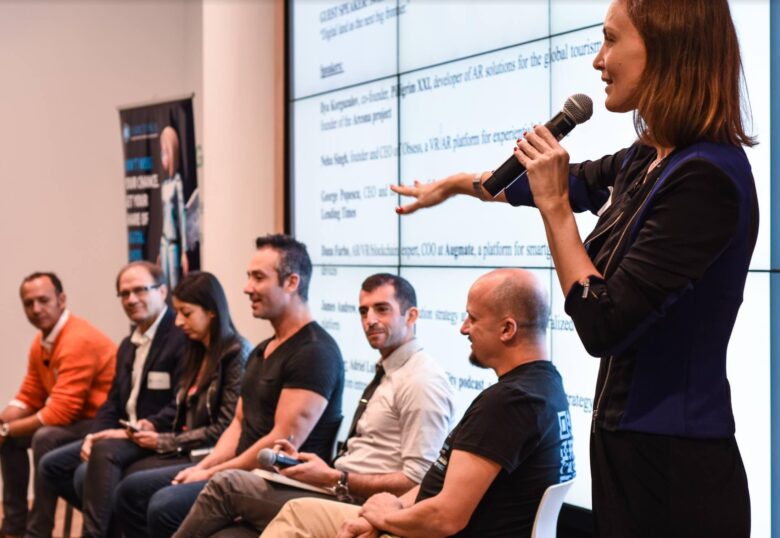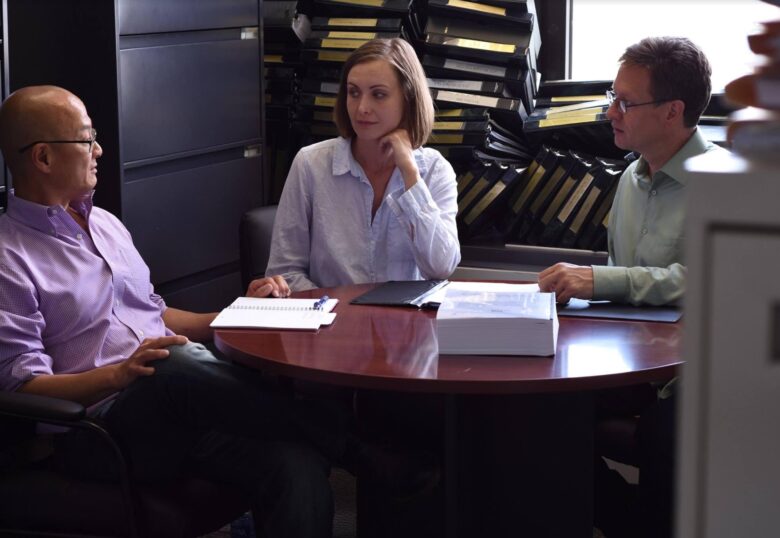A science and tech writer Victoria Zavyalova has long had a fascination with innovators, and this lifelong interest inspired her to launch The Vertical, a publication focusing on immigrant entrepreneurs.
For years, their stories seemed to fly under the radar. Yet, 55% of America’s most valuable startups were launched by foreign-born entrepreneurs. The Vertical’s stories about immigrant founders are now republished by top U.S. publications.
Zavyalova generously took the time to talk about the changing face of entrepreneurship and the future of media during an exclusive interview.
Contents
- Why are you focusing on immigrant entrepreneurs?
- What makes a good story? Do you cover businesses that just moved to the U.S.?
- Can you give an example of such a story?
- What is the future of media, considering the rapid development of technology, specifically, AI and blockchain?
- Have you read anything interesting lately – an article, a book, or a story?
- What’s motivating you? How did you come to do what you do?
Why are you focusing on immigrant entrepreneurs?
Major media mostly present immigrants as struggling beggars on benefits, although this narrative isn’t backed by statistics. Nearly 80% of America’s billion-dollar companies have foreign-born co-founders, CEOs or VPs, according to the National Foundation for American Policy (NFAP).
Most immigrant founders have so much resilience and talent. And so, their stories should be told to the general public. Tech is one of the very few industries where immigrant entrepreneurs can experience a meteoric rise to the top. That is why we chose to cover tech companies, launched by foreign-born founders —- because of their immense potential.

What makes a good story? Do you cover businesses that just moved to the U.S.?
The Vertical’s main goal is to provide inspiration and cultural guidance to techpreneurs. A good topic for us is either an inspirational story or a trend — for example, VCs boosting their investments in immigrant entrepreneurs. We also provide advice from top professionals in their field, such as how to raise capital or sell in the U.S.
We only cover startups that have “traction” — customers and measurable growth in the U.S., the most competitive market in the world. Such ventures are mostly run by immigrants who aren’t new to the U.S. For new arrivals, even if they got solid VC funding, getting traction in the U.S. takes a lot of effort.
They have to spend time learning about the market. That’s why we rarely cover businesses or entrepreneurs who recently relocated. They have to learn first to become successful — and The Vertical helps them to do so.
Can you give an example of such a story?
We have had so many. The story that inspired me personally was one about an immigrant female founder who went from $180K in student debt to building a very successful professional career and launching her own business. She recently raised a whopping $40 million VC capital. Another founder worked his way up from bussing tables at a fast food chain to being featured on Forbes’s ’30 Under 30’ list. I love interviewing entrepreneurs: it’s the best way to learn resilience and positive thinking from the most successful and daring people.
What is the future of media, considering the rapid development of technology, specifically, AI and blockchain?
For now AI is a religion, just like blockchain. The technology is not quite there, but early adopters already worship it and create a lot of buzz. Eventually, AI will be writing better and producing most of the content available to humans. And we’ll be able to counter propaganda and disinformation with blockchain. But it’s just a long way to go.
Even the viral OpenAI’s ChatGPT’s quality differs. Sometimes it’s fantastic, and other times it’s really mediocre, which you probably won’t notice if you’re not a professional. Also, writing as an instrument of self-expression isn’t going to go away, as well as professional journalism as an occupation.
The major concern in the media today are “deep fake” videos. The increasingly sophisticated AI produces remarkably realistic videos with events that never happened. Another danger is algorithms showing people the content that they want to see to confirm their unconscious bias. They might never hear an alternative opinion.
The future is niche media, focusing on specific topics and communities where readers, too, have a voice. Where questions are asked, facts are verified, and where AI plays a significant role in managing the process.
 Have you read anything interesting lately – an article, a book, or a story?
Have you read anything interesting lately – an article, a book, or a story?
The book that recently made a huge impact on me is The Culture Code by Daniel Coyle. It’s a wonderful combination of the latest research, marketing tips, and a great piece of literature. I can highly recommend it to international founders looking for the key to understanding their American partners or clients, and how their motivation is different.
For example, in the U.S. work defines who you are, while, say, in France, fun is the most important element of employment. Even if you lived in the U.S. for a long time, you’ll learn so much about cultural differences and attitude to love, alcohol, purchasing decisions, etc.
What’s motivating you? How did you come to do what you do?
I’ve been covering technology, science, startups, and venture capital for over a decade. This fascination started early: as a child, I lived by Baikonur, a spaceport in southern Kazakhstan. I grew up admiring the power of scientific minds and strong people aiming for the stars.
Also, entrepreneurship kinda runs in my blood. My great-great-grandparents had a small estate on the border with Latvia and Belarus. But during the Bolshevik revolution of 1917, their land was taken away. And they had to leave their home and run in the middle of the night to save their lives.
They made it to Siberia with nothing. Still, they didn’t give up and built a mill. But, during the dekulakization of the Stalinist period, another dark part of Soviet history, their property was once again expropriated. The family was deported to Kazakhstan. They were left in the desert with nothing, just their bags and children. And they managed to rebuild their lives.
Whatever happened in our lifetime might be disruptive, but it’s nothing in comparison to what our ancestors had to go through. This is truly the best of times, with so many tremendous opportunities. Most importantly, we are free to be where we want and do what we love.
